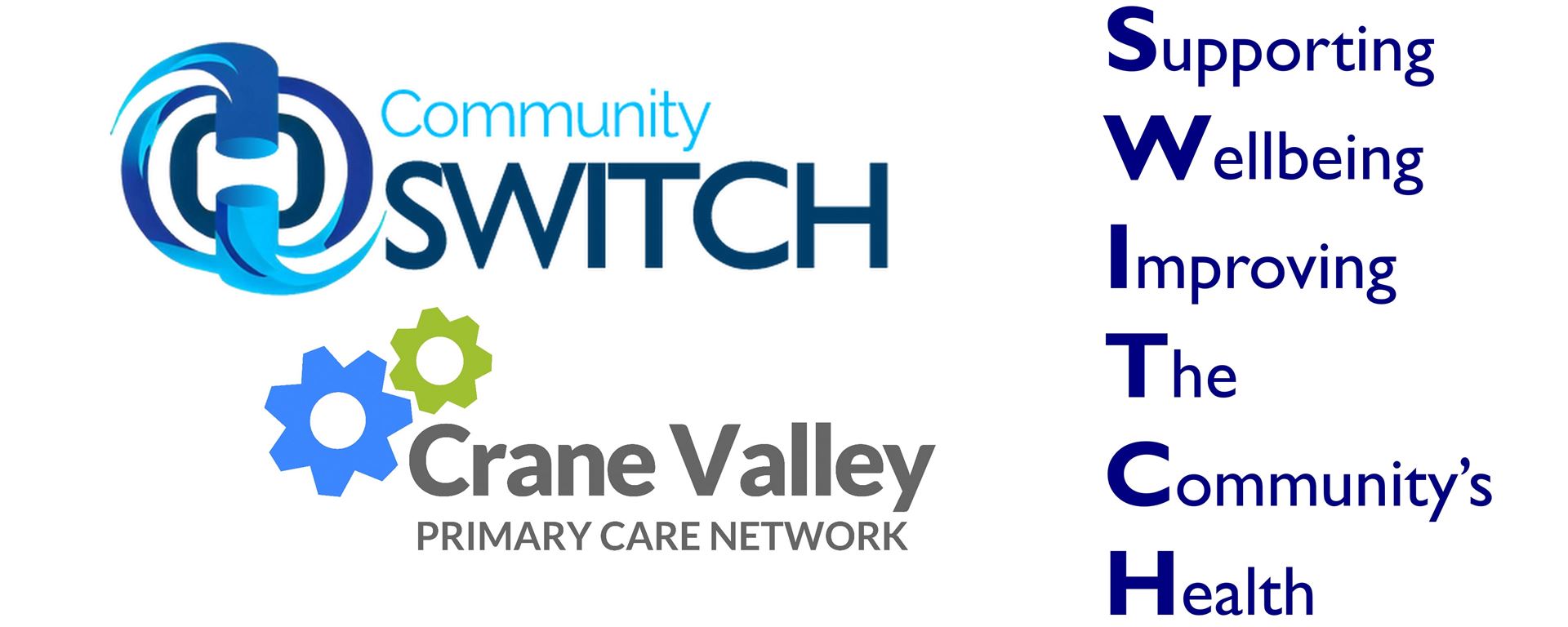Vaccinations
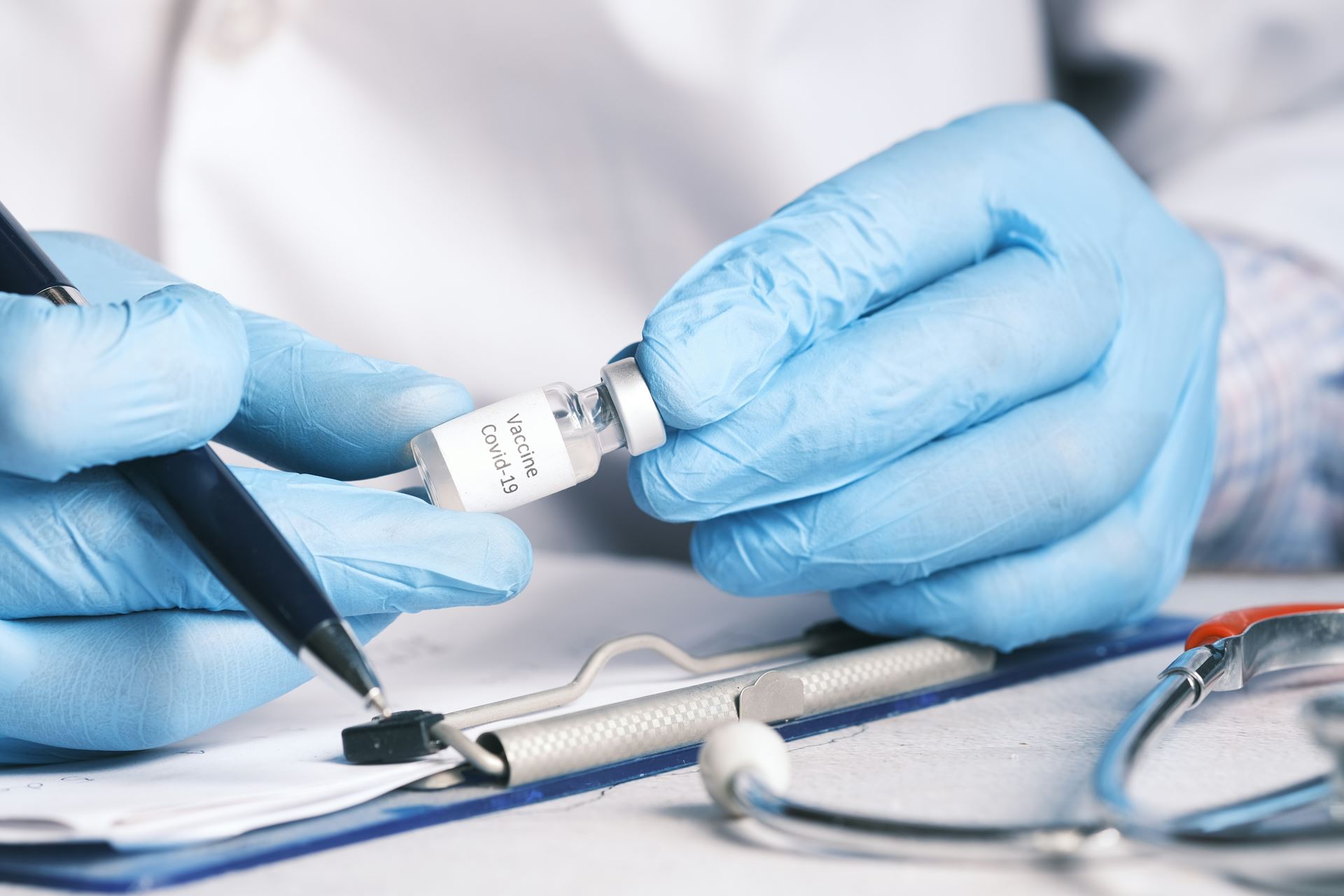
Stay Protected, Stay Healthy!
Vaccines are one of the safest and most effective ways to protect yourself, your family, and your community from serious diseases.
Why Vaccinate?
- To prevent serious illnesses like flu, measles, and pneumonia
- To protect those who are more vulnerable, like babies and the elderly
- To reduce the spread of infections in the community
- To keep yourself and your loved ones safe and healthy
Who Should Get Vaccinated?
Vaccines help at every stage of life.
Scroll down to find out more about the free NHS vaccines that the Practice offers for babies, children, and adults.
Respiratory Syncytial Virus (RSV) Vaccinations
Expansion of the NHS RSV Vaccination Programme
From 1 April 2026, the eligibility for the RSV vaccine is changing to include more people in our community. RSV is a common cause of coughs and wheezing, but it can lead to serious lung infections in older adults.
Who is eligible?
The vaccine is now available to:
- New: Everyone aged 80 years and over.
- New: All residents in care homes for older adults.
- Existing: Adults aged 75–79.
- Existing: Pregnant women.
What do I need to do?
Please do not contact the surgery at this time. We are currently identifying all eligible patients and will contact you directly to book your appointment once the rollout begins in April.
Double up on protection: From 13 April 2026, if you are eligible for both the RSV and the Spring COVID-19 vaccines, you can conveniently receive both at the same time.
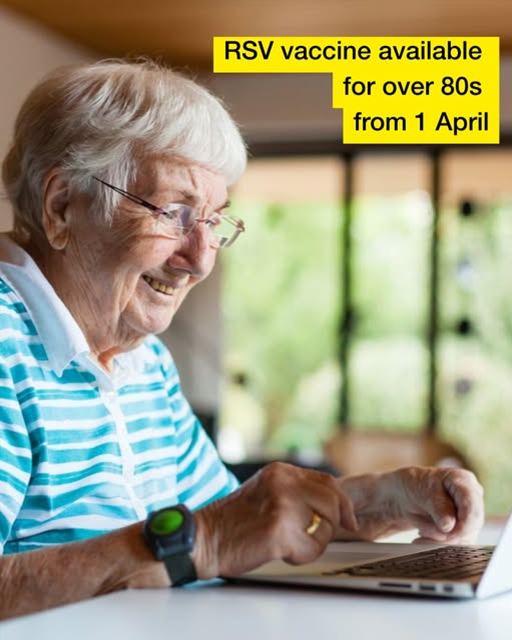
Winter flu and COVID vaccination clinic information
Flu season arrived early this year — and it’s been hitting hard
You can get the free NHS flu vaccine if you:
- are aged 65 or over
- have certain long-term health conditions
- are pregnant
- live in a care home
- are the main carer for an older or disabled person, or receive a carer's allowance
- live with someone who has a weakened immune system
Frontline health and social care workers can also get a flu vaccine through their employer.
Key Change to COVID vaccine eligibility this season:
MMRV (measles, mumps, rubella and chickenpox) vaccine
The MMRV vaccine is a safe and effective combined vaccine that replaced the MMR vaccine in the routine schedule on 1 January 2026. It protects your child against four serious illnesses in fewer injections:
These conditions are highly infectious and can spread easily between unvaccinated people.
Why the change?
The addition of the chickenpox component (Varicella) helps prevent this common, easily spread infection in children. It is usually mild, but it can lead to serious complications which need hospitalisation, including chest infections and fits.
By using the combined MMRV vaccine, the NHS has also moved the second dose earlier (from 3 years 4 months to 18 months) to ensure children are fully protected before they start nursery or pre-school.
The Vaccination Schedule
Two doses of the vaccine are required for lifelong protection. There is currently no medical treatment for measles, so vaccination is the only way to prevent becoming seriously unwell.
The MMR vaccine is still available for older children and adults born on or before 31 December 2019 who were not vaccinated against measles, mumps and rubella when they were younger.
Visit the NHS website for more information about the MMRV vaccine here>>
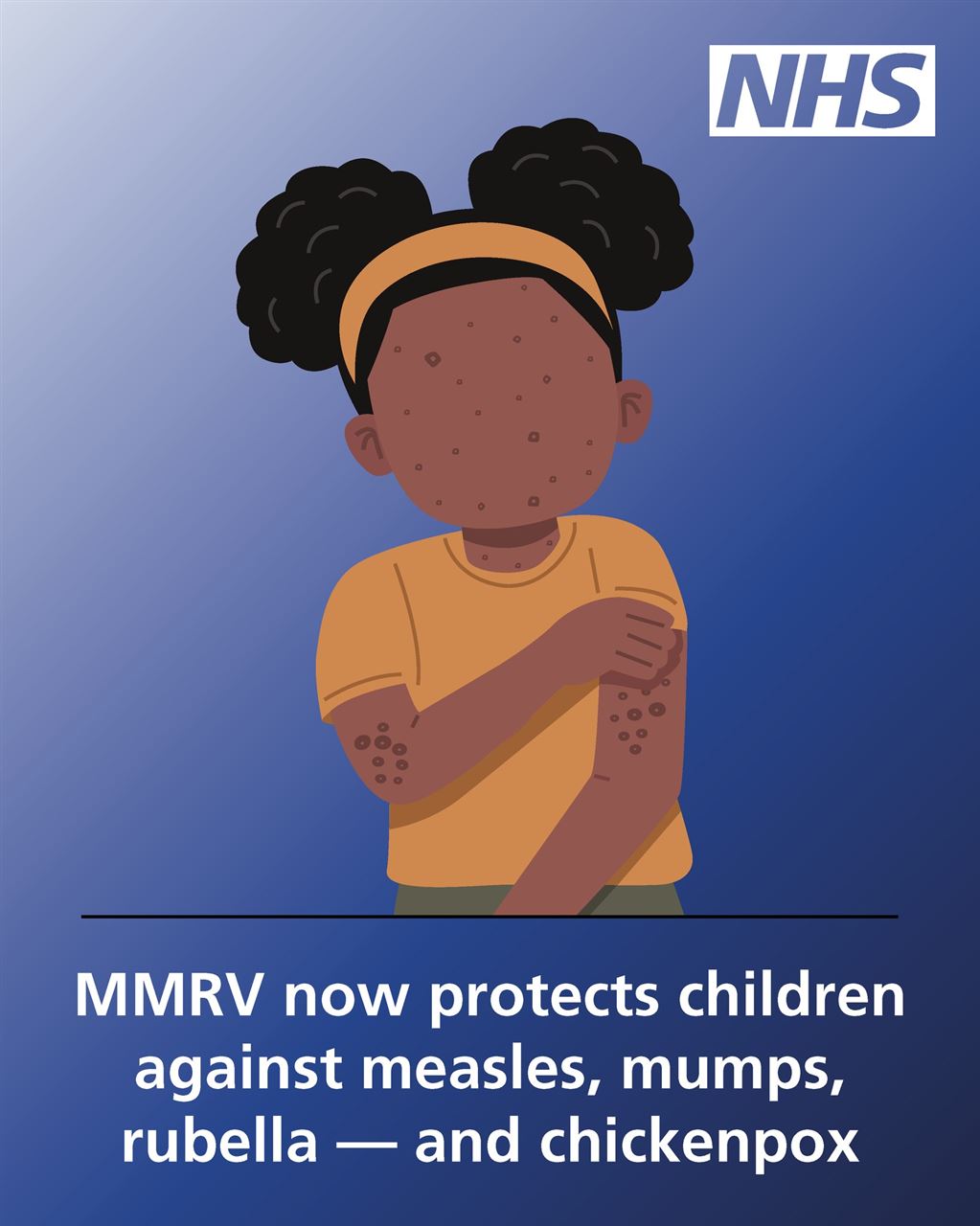
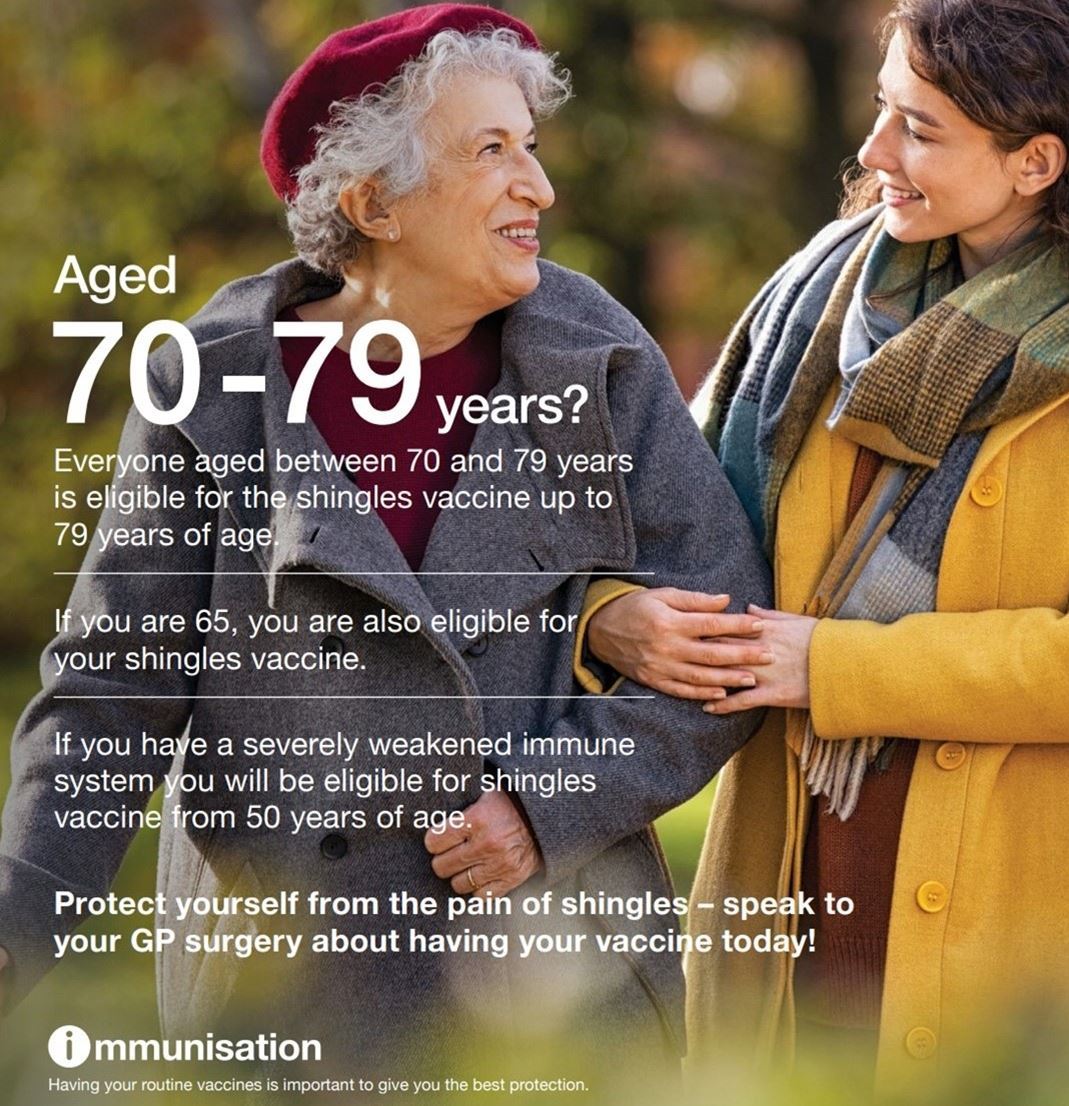
Shingles vaccinations
The Shingles vaccine helps protect you from shingles, a common, painful skin disease.
Previously, you could only have the shingles vaccine between the ages of 70 and 79. However anyone turning 65 on or after the 1st of September 2023 is able to get the vaccine after their birthday.
Please note that if you have your 65th birthday before the 1st of September 2023, you will have to wait until you are 70 to become eligible. Eligibility will then be expanded to include everyone aged 60 and over by September 2033.
From September, the shingles vaccine will also be available to those aged 50 or over with a severely weakened immune system. Immunocompromised individuals who have already received 2 doses of their Shingles Vaccine do not need re-vaccination.
You do not need to get in touch with us to request a shingles vaccine as patients are contacted when they become eligible. However if you are eligible and think you may have missed your vaccine, please contact us>>
The shingles vaccine is given as a single injection into the upper arm. Unlike the flu jab, you’ll only need to have the vaccination once, and you can have it at any time of the year.
For more information visit the Shingles vaccine overview page on the NHS website>>
Pneumonia vaccination
The pneumococcal vaccine protects against serious and potentially fatal pneumococcal infections. It’s also known as the pneumonia vaccine.
Pneumococcal infections are caused by the bacterium Streptococcus pneumoniae and can lead to pneumonia, septicaemia (a kind of blood poisoning) and meningitis.
A pneumococcal infection can affect anyone. But some people are at higher risk of serious illness, so it’s recommended they’re given the pneumococcal vaccination on the NHS.
These include:
- babies
- adults aged 65 or over
- children and adults who are at risk of pneumococcal infection, such as those with a serious heart or kidney infection including those with severe autoimmunity
This vaccine is not given annually like the flu jab. Usually you only need a single pneumococcal vaccination. If you have a long-term health condition you may only need a single, one-off pneumococcal vaccination, or a vaccination every 5 years, depending on your underlying health problem.
If you or a family member is in this group, please contact us to check eligibility.
For more information about the Pneumonia vaccine please visit the NHS website by following this link:>>
Winter 2025/26 Vaccination Information for Patients - updated 8th November 2025
The NHS encourages eligible groups—such as older adults, pregnant women, young children, those with certain health conditions and carers—to get vaccinated as early as possible in the season.
Scroll down for information on this years Autumn/Winter vaccination clinics.
Other Vaccinations Offered by the NHS
This guide can help you understand the vaccines offered in the UK and when to have them. It also explains how they work and why they’re safe and important. Follow this link for more information about vaccinations from NHS UK>>
If you have any questions or concerns regarding vaccinations, please contact us.
Travel Vaccinations
Foreign travel may expose patients to certain infections. So, If you're planning to travel outside the UK, find out what vaccinations you might need on our Travel Health page by following this link:>>
Childhood Immunisation
Childhood immunisation is an important aspect of your child's healthcare. For information on routine childhood immunisation, please visit our Children's Health page by following this link:>>
Page created: 26 April 2023
